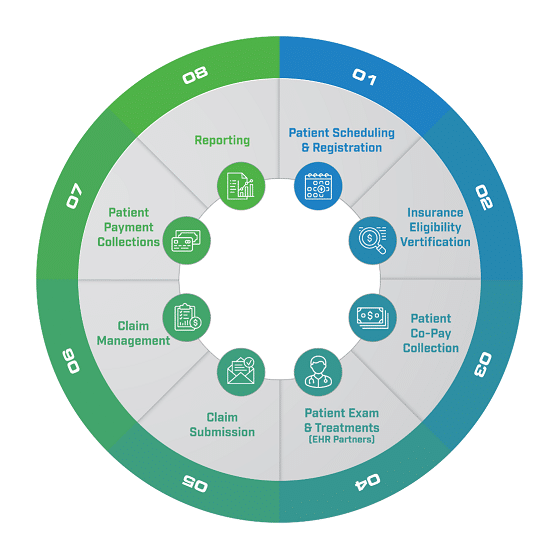This article provides an in-depth analysis of the evolving role of medical billing services in the healthcare industry. It underscores the strategic importance of selecting the right medical billing company, delving into their impact on the efficiency and financial robustness of healthcare practices.

Part 1: The Landscape of Medical Billing in Modern Healthcare
- Explore the current state of medical billing services, emphasizing their essential role in the healthcare revenue cycle. Discuss how these services have become more critical with the increasing complexity of healthcare services and insurance structures.
Part 2: Decoding the Services Offered by Medical Billing Companies
- Detail the range of services provided by medical billing companies. From patient registration and insurance verification to coding, claim submission, and follow-up, each aspect is vital for ensuring a smooth financial process.
Part 3: The Challenges and Solutions in Medical Billing
- Address the challenges faced by medical billing services, including regulatory compliance, claim denials, and the need for technological integration. Discuss how top medical billing companies navigate these challenges and provide solutions.
Part 4: The Technological Revolution in Medical Billing
- Dive into the impact of technology on medical billing. Discuss innovations like AI, machine learning, and cloud-based systems, and how they are streamlining billing processes, enhancing accuracy, and improving data security.
Part 5: Compliance - A Critical Consideration
- Elaborate on the importance of compliance in medical billing. Discuss the role of medical billing companies in ensuring adherence to regulations like HIPAA and the implications of non-compliance.
Part 6: The Benefits of Outsourcing Medical Billing
- Analyze why many healthcare providers opt to outsource their billing processes. Highlight the benefits, including cost savings, access to expert knowledge, and allowing healthcare providers to focus on patient care.
Part 7: Selecting a Medical Billing Partner
- Offer insights into the criteria for choosing the right medical billing company. Discuss factors such as experience, technological prowess, customer support, and the ability to provide tailored solutions.
Part 8: Future Trends: What Lies Ahead for Medical Billing Services
- Speculate on future trends in medical billing. Discuss the potential for further technological integration, the impact of emerging healthcare models on billing practices, and the ongoing importance of data analytics.
Conclusion: Conclude by reiterating the crucial role of medical billing companies in the contemporary healthcare sector. Emphasize their strategic importance in optimizing healthcare operations and their evolving role in a rapidly changing industry.
Comments
Post a Comment